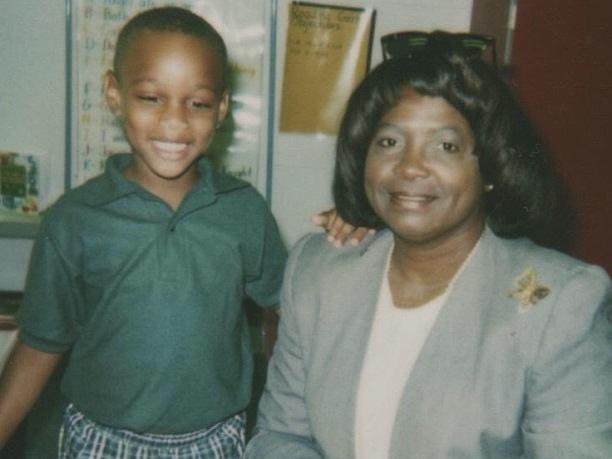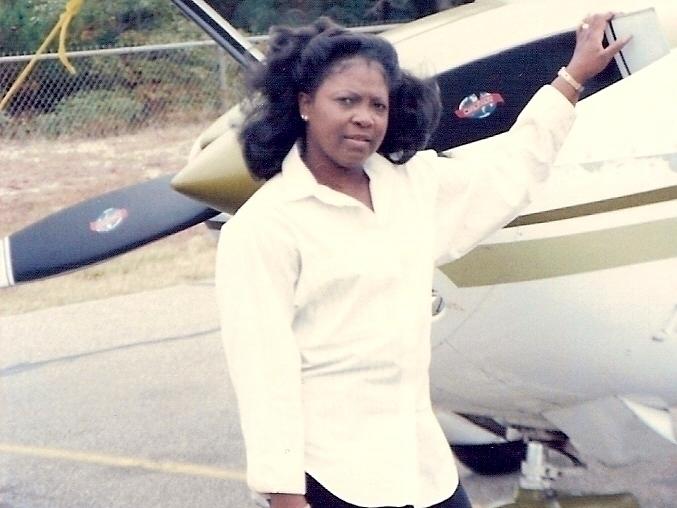Section Branding
Header Content
What Black women's hair taught me about agency, reinvention and finding joy
Primary Content
The chorusing clack of curling irons and the deep hum of hooded hair dryers were familiar sounds throughout my childhood.
I'd regularly accompany my mother on her bi-weekly visit to the hair salon, each trip leaving me transfixed by the seemingly endless array of hairstyles that filled the salon posters on the walls and packed the issues of Black Hair magazine I flipped through while patiently sitting in the waiting area.
Black women of all shapes, sizes, skin tones and hair textures transformed right in front of my eyes. Whether toting a magazine tear-out of a celebrity hairstyle or sharing a hairstyle of their own imagining, these women confidently trusted their stylist of choice to bring their hair visions to fruition.
From blunt bobs to micro braids and curls as high as the prayers I heard her lift up every morning, I'd revel in the debut of what new hairstyle my mom had chosen for herself.
I witnessed the sense of pride that filled my mother's beautiful face, her valley-deep dimples pressed into cheeks professing the delight of her stylist's job well done.
Those salon trips of my childhood had a great influence on me — becoming one of the spaces where I first discovered the allure of the art of creating. I was intrigued by the idea of transformation and the glamour I witnessed in action.
But as I aged into my teenage and adult years, I more fully understood what hair represented for my mother and the Black women of the diaspora.
My mother's hair became a vessel through which I grasped the ideas of agency, evolution and being fearless in pursuit of what brings me joy.
The everyday icon I call mom expressed herself in a way that mimicked the pop culture sirens I also found so creatively inspiring. There were Janet Jackson's burgundy coils on The Velvet Rope album cover and Toni Braxton's transition from a classic pixie during her self-titled debut to back-length waves on her sophomore project, Secrets. And then there was Brandy's revolving array of micro braid styles and the quartet of varying styles worn by LeToya Luckett, LaTavia Roberson, Kelly Rowland, and Beyoncé Knowles-Carter between Destiny's Child's debut and sophomore projects.
Black women's hair is intentional, and limitless, and historical, and influential, and deeply political in a world often incapable of recognizing the depths of its wonder. The Black women I met in the salon as a child reflected that splendid truth back at me — the transformational power of their hair existing as just one movement in the expansive symphony of Black womanhood.
Decades after those childhood trips accompanying my mom to the salon, her hair remains a symbol of her agency and the choices she makes on how she wants to be seen in the world.
It is her lifelong promise to always make time for herself. It is her note to never fail to celebrate the infinite options of who she can be. It is her thoughtful act of self-care and self-preservation.
And she is my gloriously unwavering reminder that our personal identity is ours to pridefully shape, build, and display in whatever style we choose.
This essay first appeared in the Up First newsletter. Subscribe here so you don't miss the next one. You'll get the news you need to start your day, plus a little fun every weekday and Sundays.


